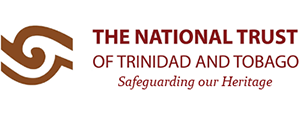‘National Trust, US Embassy and University of Florida using tech to assess risk of climate change on heritage sites’
Climate change is threatening historic and coastal communities and sites across the Caribbean region, including Trinidad and Tobago, and a method for assessing and addressing the risks is the goal of a research program being conducted under the National Trust of Trinidad and Tobago. This project has long been an important goal of the National Trust and through a grant of approximately USD$200,000 from the U.S Embassy’s Ambassador’s Fund for Cultural Preservation (AFCP), the research has begun and is projected to be completed by December 2023.

National Trust Kara Roopsingh and Margaret Mcdowall speaking with Charge d’Affairs Shante Moore Dr Cleary Larkin and Minister Pennelope Beckles-Robinson with Kimberly Rose and Dr Sujin Kim
At a launch reception for stakeholders held on April 26th at the Mille Fleurs heritage site in St. Clair, Chairman of the National Trust Margaret McDowall introduced the start of the Trust’s “Resilient Heritage Trinidad and Tobago” research program. The project is being done in collaboration with the University of Florida’s Historic Preservation Program (UFHPP) and entails the use of advanced 3D laser scanning and photogrammetry tools to digitally map the landscape and heritage structures at two pilot sites in Trinidad. This data, together with feedback from a wide cross section of stakeholders in Trinidad and Tobago obtained though consultations which immediately followed the launch, will be used to produce a vulnerability assessment report that will include conservation management plans, and strategies for enhancing resilience.
Speaking at the reception, U.S. Embassy Port of Spain Chargé d’Affaires Mr. Shante Moore noted that the U.S. remains committed to managing the impact of climate change in Trinidad and Tobago, a goal of this project. Mr. Moore stated, “One of the primary goals of this initiative is to create a model framework for conserving and adapting heritage sites across Trinidad and Tobago and increase resilience to climate change and sea level rise.” Mr. Moore congratulated the National Trust on its proposal being among 32 selected from 172 concept notes submitted to the U.S. Department of State’s Bureau of Education and Cultural Affairs, adding that it was a tremendous achievement for Trinidad and Tobago. Trinidad and Tobago was the only English-speaking country in the Western Hemisphere to be awarded the AFCP grant in 2021. Mr. Moore also described the wide range of cultural heritage that the AFCP preserves across the world including historic buildings, archaeological sites, paintings, manuscripts, Indigenous languages, and other forms of traditional cultural expression. Since 2001, the United States has supported over 1,000 preservation projects in 130 countries.

Dr. sujin Kim demonstrates the use of the Lidar technology to create digital models of buildings on Nelson Island
The heritage areas in Downtown Port of Spain (St. Vincent Jetty Lighthouse, Fort San Andres and the PTSC building) and Nelson Island, are within key commercial and residential districts making the need for advanced planning of actions to mitigate the impact of climate change and rising sea levels even more urgent. Noting that this will require extensive coordination within and between Government Ministries, the Honorable Penelope Beckles-Robinson, Minister of Planning and Development was confident that the research will also provide a window of opportunity for the Ministry to harmonise initiatives across Government Ministries into a course of action that will address the risks and vulnerabilities to heritage sites and the wider community. The Minister expressed her confidence that the research will help to stimulate substantial shifts in choices people make that impact the country’s tangible heritage and the environment. “It can bring us closer to the realization that at a global level, we have a common responsibility to each other across counties and across continents.”
Cleary Larkin, Acting Director of the Historic Preservation program at University of Florida explained that at Nelson Island, the team is undertaking a conditions assessment of the structures, providing digital documentation, and existing conditions drawings, and making recommendations for Conservation Management Planning. “For the downtown resources, we will be using digital documentation to assess and visualize how climate change and water impact your heritage resources.” This is the initial stage of a series of activities which will be taking place over the next two years, with a Caribbean-wide conference on managing the impact of climate change on heritage sites carded for next March 2023 in Trinidad and Tobago.
The grant includes provisions for UFHPP to provide specialized training to National Trust staff and other local agencies, academia and other stakeholders who are involved in the project thereby boosting the local capacity for making effective interventions in heritage preservation. The National Trust Chairman noted that the project also had technology transfer benefits for Trinidad and Tobago, which could be shared with the wider Caribbean region as many of our islands face similar hazards.
Climate change is impacting many aspects of our lives in Trinidad and Tobago as it is globally. Heritage buildings are also part of that impact and the Trust, together with its critical partners in this project, the U.S. Embassy and the University of Florida hope this project will pioneer discussion and the adoption of strategies for planning adaptation and mitigation strategies in this sector.
A Resilient Heritage Trinidad and Tobago website will be launched to provide access to project information and interested persons can email resilientheritage@nationaltrust.tt with any questions they have about the project.

